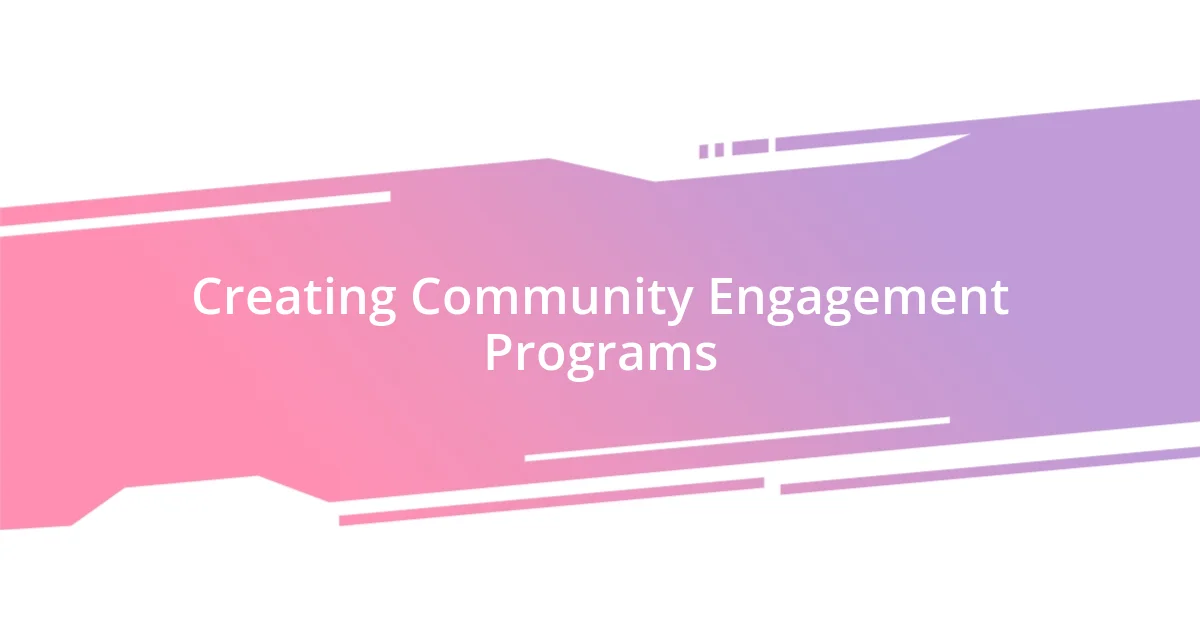Key takeaways:
- Understanding athletic history enriches appreciation for modern athletes and reflects societal changes, such as the impact of Title IX on women’s sports.
- Key historical athletes like Jesse Owens, Jackie Robinson, Althea Gibson, and Muhammad Ali represent resilience and the intersection of sports and social justice.
- Innovative celebrations involving technology and community engagement enhance recognition of athletic achievements, fostering local pride and shared experiences.

Understanding Athletic History Importance
Understanding the importance of athletic history is like uncovering the roots of a mighty tree; it provides context for where we are today. Growing up, I often found myself in awe of the legendary athletes whose stories were woven into the fabric of our sports culture. Each time I laced up my sneakers, I felt connected to those icons, as if their triumphs and struggles were a part of my own journey.
In examining this history, I sometimes wonder: how can we truly appreciate today’s athletes without understanding the battles fought before them? Reflecting on those moments when an underdog rises to greatness, it’s clear that these narratives shape our appreciation for perseverance and resilience. They inspire both athletes and fans alike, reminding us that the journey is just as significant as the destination.
Moreover, athletic history serves as a mirror, reflecting societal changes and cultural shifts over time. For instance, remembering how Title IX transformed women’s sports is not just about celebrating progress; it evokes emotions and gratitude for those who fought relentless battles for equality. This connection to history ignites passion in us, as we acknowledge the voices and actions that contributed to the sports we love today.

Key Historical Athletes to Remember
When I think about key historical athletes, names like Jesse Owens and Jackie Robinson come to mind. Jesse, with his incredible performance at the 1936 Berlin Olympics, challenged the notion of racial superiority head-on. I can only imagine the pressure he felt, standing on that world stage, knowing his achievements would ripple through history. Then there’s Jackie Robinson, who broke baseball’s color barrier in 1947. His courage and talent not only changed the game but paved the way for countless athletes of color. These athletes embody resilience and paved a path that we continue to walk today.
Another athlete I hold in high regard is Althea Gibson. Often overlooked, Gibson was the first African American to compete at and win Wimbledon in 1957. I still remember the first time I watched footage of her swinging her racket with such grace and determination; it inspired me to pursue my own athletic passions with fervor. Her story resonates deeply with anyone who’ve ever faced obstacles in their path—she fought not just for her place in tennis, but for the recognition of other marginalized athletes as well.
It’s crucial not to forget about the impact of athletes like Muhammad Ali. His incredible career in boxing was just one part of his legacy; his outspoken activism for civil rights and refusal to fight in the Vietnam War showcased the intersection of sports and social justice. Whenever I feel overwhelmed by challenges, I think of Ali and his unwavering stance on what he believed in. Each of these athletes reminds me that sports are not merely about the scoreboard; they are about the courage to stand for what is right and inspire others.
| Athlete | Major Achievement |
|---|---|
| Jesse Owens | Four gold medals in the 1936 Olympics |
| Jackie Robinson | First African American in Major League Baseball |
| Althea Gibson | First African American woman to win Wimbledon |
| Muhammad Ali | Triple World Heavyweight Champion and civil rights activist |

Events that Shaped Sports Culture
Events that shaped sports culture often reflect broader societal changes, making them pivotal moments in our collective story. For instance, when I think about the Stonewall Riots in 1969, it strikes me how this event catalyzed LGBTQ+ visibility in various realms, including sports. I vividly recall reading about athletes who were inspired to embrace their identities, seeing their bravery as a reflection of the struggle for acceptance both on and off the field.
Here’s a brief look at some key events that have significantly influenced sports culture:
- Title IX (1972): This landmark legislation increased opportunities for women in sports, reshaping the landscape of athletics in schools and colleges across the United States.
- The 1936 Berlin Olympics: Jesse Owens’ triumphs challenged racial ideologies and showcased the power of sports as a platform for social change.
- The First Super Bowl (1967): This event not only revolutionized American football but also solidified its place in popular culture, drawing millions of viewers together for a shared experience.
- The Formation of the NBA (1946): This merger not only elevated basketball as a professional sport but also highlighted the growing diversity in sports through its players and audiences.
- The Miracle on Ice (1980): America’s unexpected victory over the Soviet Union in hockey during the Winter Olympics became a national symbol of hope and unity during challenging times.
These events resonate with me not just as historical markers but as significant turning points that have shaped my understanding of what sports can represent. Each story has layers of emotion and struggle, reminding me how deeply intertwined sports are with cultural identity and social justice.

Innovative Ways to Celebrate Achievements
Innovative ways to celebrate athletic achievements can breathe new life into traditional recognition methods. I’ve always found that incorporating technology, like virtual reality experiences, allows fans and young athletes to step into the shoes of their heroes. Imagine donning a VR headset and reliving the defining moments of a legendary player’s career; it’s exhilarating and offers a deeper appreciation for their journey.
Additionally, I believe in the power of storytelling through multimedia installations. When I visited a sports museum that showcased athlete achievements through interactive exhibits, it left a lasting impact on me. I remember getting lost in the tales of perseverance, each display resonating with my experiences in sports. It’s these personal narratives that inspire us all and can spark a renewed passion for the sports we love.
Moreover, hosting community events that blend sport with art can be incredibly effective. I once participated in a local celebration where artists showcased their work inspired by athletic milestones, bringing together diversity in talent and passion. It was a stunning reminder that celebration is not just about trophies but can also involve creativity and community engagement. How could you celebrate achievements in your own community? Sometimes, the simplest ideas spark the most profound connections.

Incorporating Technology into Celebrations
In today’s digital age, integrating technology into celebrations has transformed how we honor athletic milestones. I remember attending a digital ceremony where the host used augmented reality (AR) to recreate iconic moments in sports history. It wasn’t just informative; it felt like I was part of the action, enhancing my emotional connection to those unforgettable events. Have you ever experienced such immersive celebrations? They certainly make the history of sports feel alive and relevant.
Social media platforms have become vital tools for celebrating athletes’ achievements as well. I’ve seen how hashtags can unite fans across the globe, allowing them to share stories, photos, and even virtual congratulations in real-time. During one notable celebration, we used a dedicated hashtag to share our memories and well-wishes for a retiring player, creating a vast tapestry of love and appreciation that echoed well beyond our local community. Isn’t it incredible how technology allows those heartfelt moments to ripple through the world?
Moreover, I think live-streaming events can effectively blend the physical and digital spaces, drawing in broader audiences and creating shared experiences. One year, I attended a live event that celebrated a local sports legend while simultaneously streaming it online. Fans from different states joined in, sharing their stories and cheers through the chat feature. It was a surreal feeling, knowing we were all part of something bigger, transcending location and circumstance. It made me realize how powerful technology can be in weaving our stories together. How do you envision technology enriching your celebrations?

Creating Community Engagement Programs
Creating community engagement programs centered around athletic history is a fantastic way to foster local pride and involvement. I vividly recall a town initiative I participated in that invited diverse generations to share their favorite sporting memories. The energy was palpable as young kids listened wide-eyed to seniors recount their childhood games; it ignited connections that seemed to span a lifetime, bridging gaps I hadn’t even noticed before. Have you considered how sharing such stories could enrich your community?
Moreover, I believe that collaboration with local schools can enhance these programs tremendously. For example, I saw firsthand how a partnership between a local high school and a community center led to an incredible sports history project. Students researched and presented on local sports legends, garnering insights not only into the history of our athletes but also into their own potential paths. This initiative sparked a newfound interest in sports for many and cultivated pride in our local history—what a rewarding experience!
Another great aspect is organizing community sports days that celebrate local athletes while including fun, interactive activities for all ages. I remember volunteering at an event where we set up obstacle courses inspired by famous athletes’ training regimens. Families participated together, and that spirit of camaraderie reminded me how sports can unite us in unexpected ways. Isn’t it remarkable how a playful atmosphere can inspire joy and community engagement at the same time?

Documenting Your Celebration Journey
Documenting your celebration journey is an essential aspect of keeping those cherished moments alive. I recall a time when I decided to compile a scrapbook of our local sports achievements, including photos, newspaper clippings, and handwritten notes from fans. As I flipped through those pages, I felt a nostalgia that reminded me why these moments became vital narratives in our community.
Sharing these experiences online has also enriched the way we document our celebrations. For instance, during a local marathon, we created a collaborative Google Drive folder where participants could upload their race day memories. It was exhilarating to see everyone’s perspectives—from post-race smiles to powerful moments of perseverance. Collectively, these stories painted a vivid picture of camaraderie and determination, sparking conversations I still cherish.
I often wonder how different the experience would be if we didn’t document these milestones. Just last year, I attended an anniversary event celebrating a legendary coach, and the organizers displayed a video montage filled with memories shared by former athletes. The emotional resonance was palpable; it wasn’t just about football, but about lives transformed through sport. Isn’t it fascinating how these documented experiences can open doors to nostalgia, unity, and inspiration?














